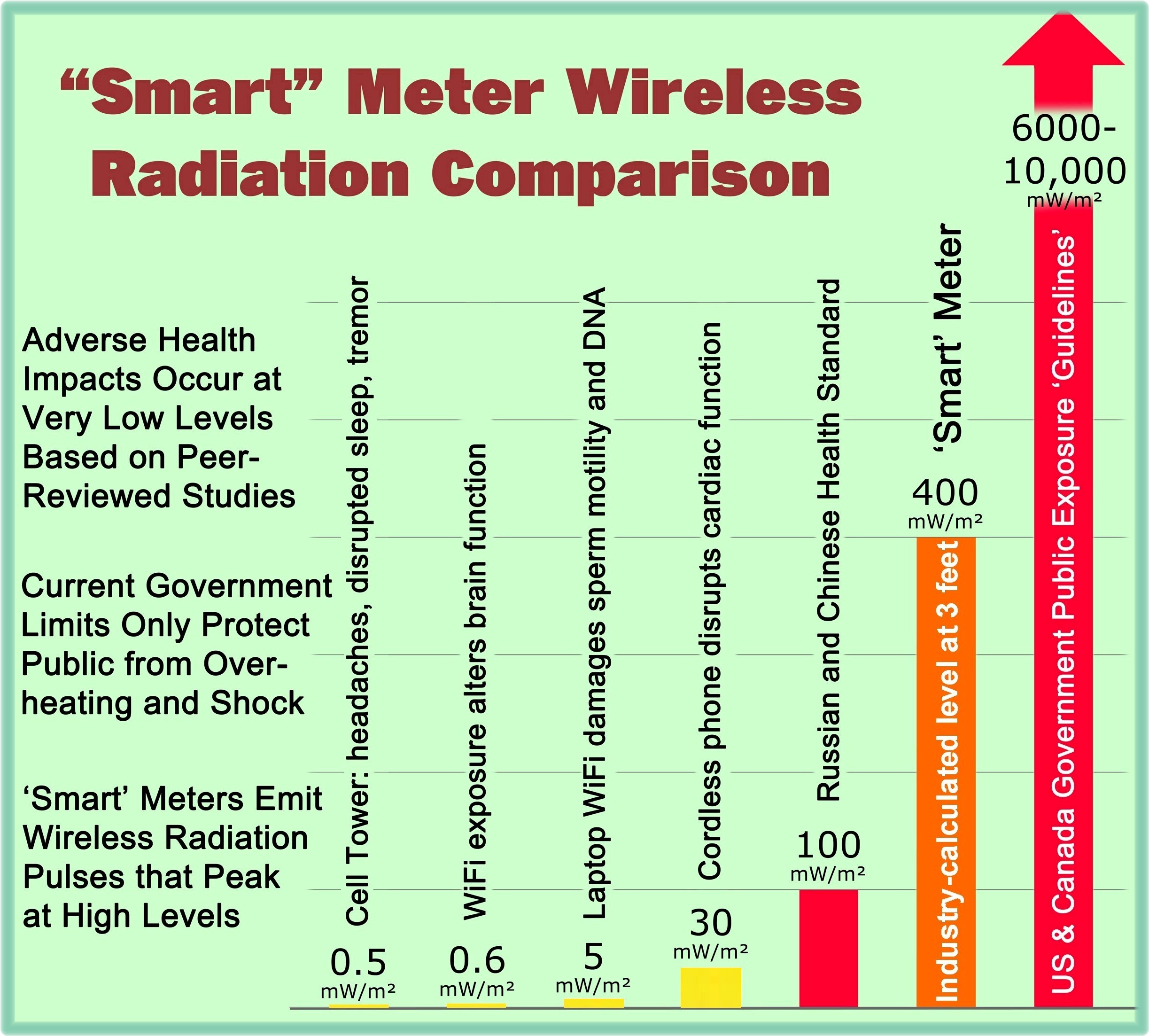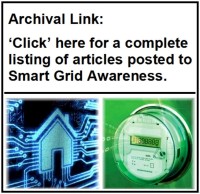by K.T. Weaver, SkyVision Solutions
 Earlier this year, I wrote that Indiana Regulators Reject Smart Meters for Duke Energy. The headline news was that state regulators rejected a proposal from Duke Energy to raise customers’ rates, in part to pay for a proposal that would have allowed the utility to unnecessarily install costly, privacy invading digital ‘smart’ meters in every home in its service territory.
Earlier this year, I wrote that Indiana Regulators Reject Smart Meters for Duke Energy. The headline news was that state regulators rejected a proposal from Duke Energy to raise customers’ rates, in part to pay for a proposal that would have allowed the utility to unnecessarily install costly, privacy invading digital ‘smart’ meters in every home in its service territory.
I recently became aware that I did not fully highlight the role of a state consumer watchdog group, Citizens Action Coalition (CAC), in helping to defeat the rate hike proposal. As a campaign issue for the CAC, the group wrote the following at its website:
“VICTORY: Duke Energy smart meters/rate hike DENIED! …
Duke’s petition … included a $177 million request to install expensive, invasive, and unnecessary smart meters in every home and business in their Indiana service territory. To add insult to injury, they wanted to continue to earn a return on the investment for the old meters they were proposing to remove while simultaneously recovering the costs (plus a rate of return) of the new smart meters! Unacceptable.
Duke should not be allowed double recovery!
Smart meters should not be mandatory. Duke should be required to offer the smart meters to customers as a voluntary option. Ratepayers should not be forced to pay for a smart meter they don’t need and they don’t want. The costs of smart meters far outweigh the benefits. Most of the purported benefits of smart meters are benefits for the utility. Therefore, they should bear some of the costs and risks associated with the meters.
Lastly, many concerns have been expressed about privacy and cyber security related to the installation and utilization of smart meters. All of these concerns must be addressed prior to any approval for a smart meter rollout.”
Of particular interest in what is written above is that:
“The costs of smart meters far outweigh the benefits. Most of the purported benefits of smart meters are benefits for the utility.”
The above statements cannot objectively be refuted based upon other information available at this website. Thus, why would ‘smart’ meters ever be installed anywhere for a single consumer? They would not and should not. It is only due to ulterior motives and ignorance that industry groups and colluding organizations are forcing ‘smart’ meters upon consumers when it is known that there are no benefits, although there are substantial risks and abuses.
‘Smart’ meters cannot be financially justified as “used and useful” when realistic cost recovery assumptions are utilized as part of a business case analysis. In addition, and consistent with a recent Judge’s opinion from the Michigan Court of Appeals, it is imperative that for proposed smart meter deployments: “a cost-benefit analysis should include health, safety, and privacy issues.”
This is why we need more consumer watchdog groups to educate themselves (like the group from Indiana has done) on ‘smart’ meter costs and risks and take a stand in fighting these abusive, not-so-smart devices.
Unfortunately, there are some supposed consumer-related watchdog groups that have ‘sold out’ to smart grid industry-related interests. Among them, for example, is the Illinois Citizens Utility Board which is an Affiliate Member of the Smart Grid Consumer Collaborative (SGCC) propaganda organization.
Despite the challenges and possible conflicts of interest with some organizations, concerned consumers and activists should encourage their state-based consumer watchdog groups to help lead the fight against smart meters and to prevent them from being further deployed in the United States and elsewhere. Properly informed on the facts and the abuses that ‘smart’ meters cause, consumer watchdog groups may finally realize it is indeed their responsibility to vigorously oppose them in order to protect consumer interests.
Background Information from the Citizens Action Coalition of Indiana
Citizens Action Coalition of Indiana comprehensively reviewed the ‘smart’ meter issue in 2009 and concluded that:
“Technologies involved in the development of a smart grid are internet-based and interactive in nature, such as smart meters. While the advanced or smart metering technology may be needed in the creation of the smart grid, the current uses of these meters can be abusive to customers.”
“Given the detailed, expensive and exploratory nature of employing smart grid technology, individual state commissions should hold off approval for smart meter investments until a clear connection to FERC’s immediate goals with respect to cost recovery can be proven.”
Other noteworthy statements from a white paper type document prepared by the CAC in 2009 include:
“End-use efficiency can be achieved without a smart grid.”
“To further complicate things, the terms advanced metering, or ‘smart’ meters, are frequently confused with ‘smart grid’ (Booth, 2008). While the advanced or smart metering technology may be needed in the creation of the smart grid, the current uses of these meters can be abusive to customers.”
“One way these abuses manifest is in rate impacts to customers. These rate impacts include:
— A sharp increase in value of the ‘rate base,’ as the meters can be a substitute investment for companies that do not, or cannot, invest in power plants as they used to
— Replacing old (and depreciated) meters with new (and undepreciated) meters, while customers can still be forced to pay for the remaining depreciation on old meters
— The smart meters become rapidly obsolete with a quick 7-year depreciation as opposed to a 30-year depreciation, which is akin to telecommunications equipment and thus more costs, again, are passed on to customers (Colton, 2008, p. 4)”
“There is an inherent tension between the public interest and the utilities that the new widgets can cause, in the form of the advanced metering abuses previously mentioned.”
“What utilities claim can be at times disingenuous, and they are not necessarily forthcoming with their real agendas. The public interest must be protected from stakeholders who are rushing to cash in on new technologies that may indeed be necessary for the development of the smart grid, but are also profit-making avenues at the expense of captive customers.”
“FERC did address metering in its interim policy document, as it stated that ‘specifications for customer meters are within the jurisdiction of the States’ (FERC, 2009, p. 28). FERC also stated, ‘achieving… demand response capabilities will require additional standardization of the interface between systems on the customer premises and utility systems’ (FERC, 2009, p. 28). Given these statements along with the necessity for individual rate cases to provide showings such as the used and useful clause in smart grid investment, some usage of smart meter technology is not necessarily the kind of smart grid development that will meet FERC approval. This would necessitate state commissions to hold off approval for smart meter investments unless a clear connection to FERC’s immediate goals with respect to cost recovery can be proven.”
“Another issue discovered in the pilot project is the “Orwellian” aspect, or the lack of privacy involved in the utilities’ ability to monitor in detail customer usage of electric power (Simon, 2009, para. 7). This privacy infringement can lead to, among other things, data mining such as now occurs on the Internet.”
Primary Source Material for this Article
VICTORY: Duke Energy smart meters/rate hike DENIED! at http://www.citact.org/utility-rates-and-regulation-issues-utility-duke-energy/campaign/victory-iurc-said-no-duke-energy
“An Overview of Smart Grid Technology,” Citizens Action Coalition of Indiana, April 20, 2009, available at https://smartgridawareness.org/wp-content/uploads/2015/11/indiana-cacef_smart_grid_overview.pdf





Get rid of all so-called Smart Meters for Electricity, Water and Gas.
Smart Meters with Microwave broadcasting and receiving are deadly POISONOUS to humans and animals and trees and shrubs and Honey Bees and Bumble Bees and all forms of life.
I say to all the C.E.O’s of Electric Power Companies……….. “Go stick your dopy so-called and far from SMART Meters where the sun never shines and stick em sideways up your Derrieres !”